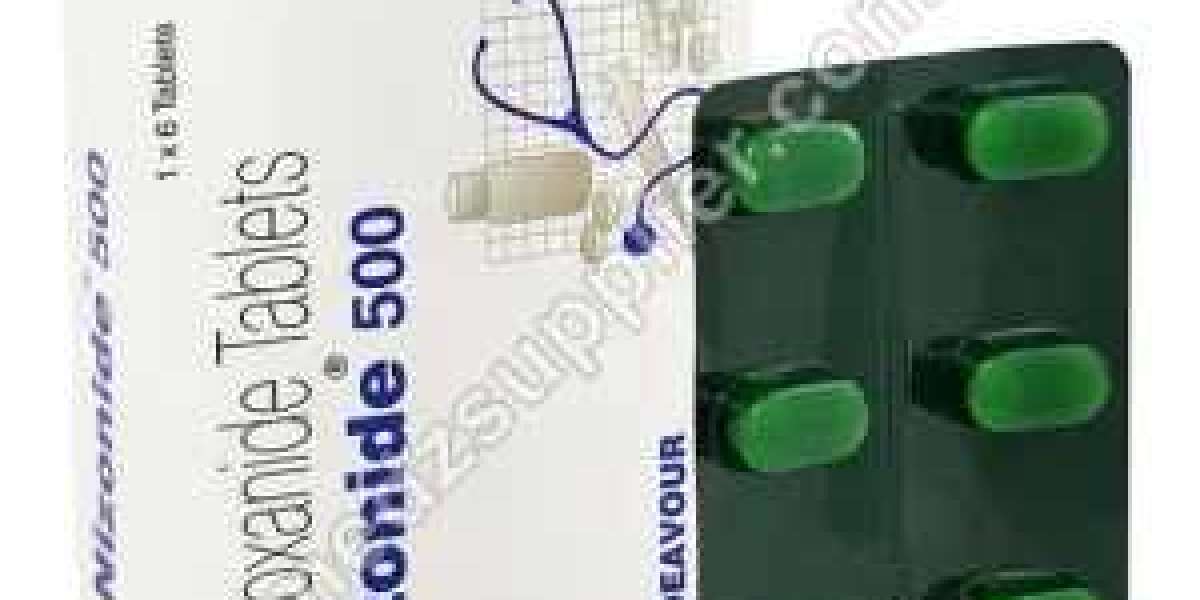Diarrhea and worm infections are two of the most common gastrointestinal problems faced by people across the world. Both conditions can lead to discomfort, weakness, and more severe health issues if not treated properly.
Nizonide, an antiparasitic medication, is commonly prescribed for certain infections that cause diarrhea and intestinal distress, particularly those caused by protozoans like Giardia and helminths (worms). In this discussion, we will explore the use of Nizonide, its effectiveness, dosage, and potential side effects, as well as general recommendations for treating diarrhea and worm infections.
Understanding Diarrhea and Worm Infections
Diarrhea
Diarrhea is characterized by frequent, loose, or watery bowel movements. It is often accompanied by abdominal pain, nausea, and dehydration. Diarrhea can be acute (short-term) or chronic (lasting more than a few weeks). Causes of diarrhea include
- Infections (bacterial, viral, or parasitic)
- Food intolerances (e.g., lactose intolerance)
- Medications (antibiotics, antacids)
- Digestive disorders (e.g., irritable bowel syndrome, inflammatory bowel disease)
Worm Infections
Worm infections, also known as helminthiasis, are caused by parasitic worms that live in the intestines. Common types include
- Roundworms (e.g., Ascaris lumbricoides)
- Hookworms (e.g., Ancylostoma duodenale)
- Tapeworms (e.g., Taenia solium)
- Pinworms (e.g., Enterobius vermicularis)
Symptoms of worm infections include diarrhea, abdominal pain, nausea, weight loss, and fatigue. Left untreated, severe cases can lead to malnutrition and other complications.
Nizonide: An Overview
What is Nizonide?
The nizonide 500mg (generic name: nitazoxanide) is an antiparasitic medication used to treat infections caused by protozoa and helminths. It is primarily prescribed for
Giardiasis
An infection of the small intestine caused by Giardia lamblia.
Cryptosporidiosis
Caused by Cryptosporidium parvum, which can result in severe diarrhea.
Helminth Infections
Certain types of worm infections, such as those caused by intestinal parasites.
Nizonide works by inhibiting the energy metabolism of parasites, ultimately killing them and clearing the infection. It is available in tablet and suspension form, with the typical adult dose being 500 mg to 1000 mg twice daily for a set number of days, depending on the infection.
Nizonide for Diarrhea and Worm Infections
Nizonide is particularly effective in treating diarrhea caused by protozoan infections like Giardia and Cryptosporidium. For worm infections, Nizonide is less commonly used, but it can still be part of the treatment for mixed parasitic infections where both protozoa and helminths are involved.
Dosage and Administration of Nizonide
The dosage of Nizonide depends on the type of infection being treated, as well as the patient’s age, weight, and overall health. Below are general guidelines:
For Giardiasis: Nizonide 500 mg twice daily for 3 days.
For Cryptosporidiosis: Nizonide 500 mg twice daily for 3 days.
For Worm Infections: The dosage may vary, but a typical course is 500 mg to 1000 mg twice daily for 3 to 5 days.
It is important to follow the doctor's prescription carefully to ensure the infection is fully cleared. Skipping doses or stopping treatment early can lead to incomplete treatment and potential reinfection.
When to Take Nizonide
Nizonide should be taken with food to improve absorption. The medication is better absorbed when taken with a high-fat meal, which increases its effectiveness.
Treatment Duration
The treatment duration usually lasts from 3 to 5 days, depending on the type and severity of the infection. However, for chronic or severe cases, the doctor may recommend a longer course of treatment.
Side Effects of Nizonide
Nizonide is generally well-tolerated, but like any medication, it can cause side effects. Common side effects include
- Nausea
- Vomiting
- Abdominal pain
- Headache
- Diarrhea (paradoxically, in some cases)
In rare cases, patients may experience more severe side effects such as allergic reactions, dizziness, or changes in urine color. If any severe or unusual symptoms occur, it is important to seek medical attention immediately.
Other Treatments for Diarrhea and Worm Infections
For Diarrhea
Hydration: The most important treatment for diarrhea is staying hydrated. Oral rehydration solutions (ORS) are often recommended, especially in cases of severe diarrhea. ORS contains a balance of salts and sugars that help the body absorb water more effectively.
Probiotics: Probiotics can help restore the balance of gut bacteria and may speed up recovery from infectious diarrhea.
Anti-Diarrheal Medications: In certain cases, medications like loperamide (Imodium) may be used to slow down bowel movements. However, they should not be used for infections like Giardia or Cryptosporidium, as they may prolong the infection.
For Worm Infections
Anthelmintic Medications
Drugs such as albendazole, mebendazole, or ivermectin are often prescribed for worm infections. These medications work by either killing the worms or preventing them from absorbing nutrients.
Hygiene Practices
Preventing reinfection is crucial. Proper hygiene, including washing hands before eating and after using the toilet, is important in controlling worm infections. Treating all household members is often recommended to prevent the spread of infection.
Preventing Diarrhea and Worm Infections
Prevention is the best way to avoid both diarrhea and worm infections. Here are some key preventive measures
For Diarrhea
Safe Drinking Water: Ensure that drinking water is clean and safe, especially when traveling.
Proper Food Handling: Cook food thoroughly and avoid eating raw or undercooked meats.
Hygiene: Wash hands frequently, particularly before eating and after using the restroom.
For Worm Infections
Regular Deworming: In areas where worm infections are common, routine deworming (every 6 months) may be recommended.
Avoid Barefoot Walking: Hookworms can enter the body through the skin, so avoid walking barefoot in areas where sanitation is poor.
Personal Hygiene: Wash hands regularly and keep fingernails short and clean to avoid the ingestion of eggs from contaminated surfaces.
When to See a Doctor
If diarrhea or symptoms of a worm infection persist for more than a few days, or if severe symptoms such as high fever, bloody stools, or intense abdominal pain occur, it is important to consult a healthcare provider. A proper diagnosis and treatment plan, including the use of medications like Nizonide, can help ensure a full recovery.
Conclusion
Nizonide is a valuable treatment option for diarrhea and worm infections caused by protozoan parasites. When used correctly, it can effectively clear the infection and restore gastrointestinal health. However, like any medication, it should be used under the guidance of a healthcare professional, particularly when treating children or individuals with other health conditions.
For effective management of diarrhea and worm infections, patients should follow their doctor’s recommendations, maintain good hygiene practices, and ensure they complete the full course of treatment to prevent recurrence.



